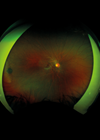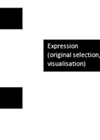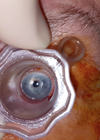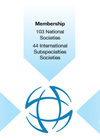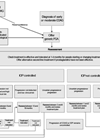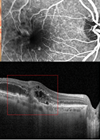The past and the future for paediatric ophthalmology
The past 25 years have seen remarkable advances in clinical eye care for children in the UK. This has led to both improved outcomes and better patient and family experiences. There have been substantial changes to patient pathways, major advances...
Best way to detect glaucoma progression: by reflecting on the past 25 years
Glaucoma – a condition of optic neuropathy leading to progressive visual field loss often associated with raised intraocular pressure. It is fair to say that our definition for this condition has remained unchanged over the last 25 years and the...
What you learn after performing 10,000 cataracts
What do you do when the anterior chamber shallows, or the zonules give way? How do you handle the stubborn epinuclear plate? Raymond Radford shares the benefit of his experience when dealing with tricky cataract surgery. Firstly, you realise you...
Well-presented scholarly research work will reduce chances of journal rebuttal
Submitting to an academic journal? Are you aware of the requirements and constraints of relevant copyright laws? Rod McNeil provides a guide for aspiring authors. Getting published in peer-reviewed academic and medical journals is not easy. But careful attention to...
The role of injection assistant devices in establishing a nurse-led AMD service
The author shares his experience of setting up a nurse-led service to deliver anti-VEGF intravitreal injections and how injection assistant devices supported training. Age-related macular degeneration (AMD) has become a leading cause of irreversible blindness [1]. It is estimated that...
Advances in cataract surgery
This article covers recent clinical findings in mydriasis and anaesthesia for cataract surgery, shared by Sathish Srinivasan and Keith Davey at a surgical meeting in Manchester. Towards dropless cataract surgery Day case cataract surgery is the standard of care in...
The International Council of Ophthalmology: what is it and is it useful for UK ophthalmologists?
ICO Director for Examinations and Assessments, Simon Keightley, explains the history and role of the organisation today, as well as outlining recent changes to the ICO examinations. The International Council of Ophthalmology (ICO) is the only international medical specialty organisation...
Globes in space: What would happen to our globes on the globe of Mars?
Many films have been made regarding life on alternative planets. With the Mars One mission approaching in 2023, there are high expectations regarding future interplanetary travel. The authors provide an ophthalmology perspective on what could happen to our eyes if...
Refined glaucoma referral practice offers prospect of improved capacity and expanded role for primary eye care professionals
Glaucoma is the most frequent cause of irreversible blindness worldwide and the second leading cause of blindness in the UK [1,2]. The global prevalence of glaucoma in 2010 was approximately 3.5% for people aged 40-80 years, according to Jonas et...
Clinical relevance of the anatomic classification of neovascular age-related macular degeneration
The author explains why an OCT-based classification of neovascular AMD is needed and how these neovascular subtypes may help to predict patients’ long-term visual outcome. Age-related macular degeneration (AMD) is a chronic and progressive neurodegenerative process involving the macula in...
The International Congress of Ophthalmology (ICO): a history
Readers of Eye News will notice in the Events section that the World Congress of Ophthalmology (WOC) is scheduled to take place in Barcelona in June 2018. This is in fact the renamed International Congress of Ophthalmology (ICO) and now...


